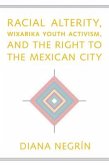Recent debates emphasize the urgency of making environmental movements more inclusive, yet they do so without deeper scrutiny of the core tenets of environmentalism. Despite efforts by some groups, there is little acknowledgment of the continuing failure of the movement in addressing environmental injustices experienced by racial minorities. Decolonizing Environmentalism makes visible the simplifications and erasures of mainstream environmental movements, while reimagining our collective commitment to environmental stewardship in a way that builds on the knowledge and praxis of indigenous people, racial minorities, and rural communities. The authors deconstruct popular ideas, such as 'green consumption' and 'sustainable development' to show how these concepts rest on misleading assumptions which are based on colonial conceptualizations of conquering nature and European Modernity's view of there being a fundamental separation between nature and society. The authors showcase alternative imaginations of environmentalism founded on materialist environmentalism that draws on indigenous living traditions of nature-society integration, with insights from contemporary movements such as The La Via Campesina Movement for Food Sovereignty, grassroots movements in Puerto Rico in response to Hurricane Maria, and the Fossil Free Movement among others.
Hinweis: Dieser Artikel kann nur an eine deutsche Lieferadresse ausgeliefert werden.
Hinweis: Dieser Artikel kann nur an eine deutsche Lieferadresse ausgeliefert werden.
Decolonizing Environmentalism dismantles the assumptions of mainstream Western environmentalism, offering a powerful critique in clear and accessible language. It goes beyond critique, however, by providing a valuable roadmap for building more inclusive and equitable environmental movements. Amitav Ghosh, author The Nutmeg's Curse (2021)








